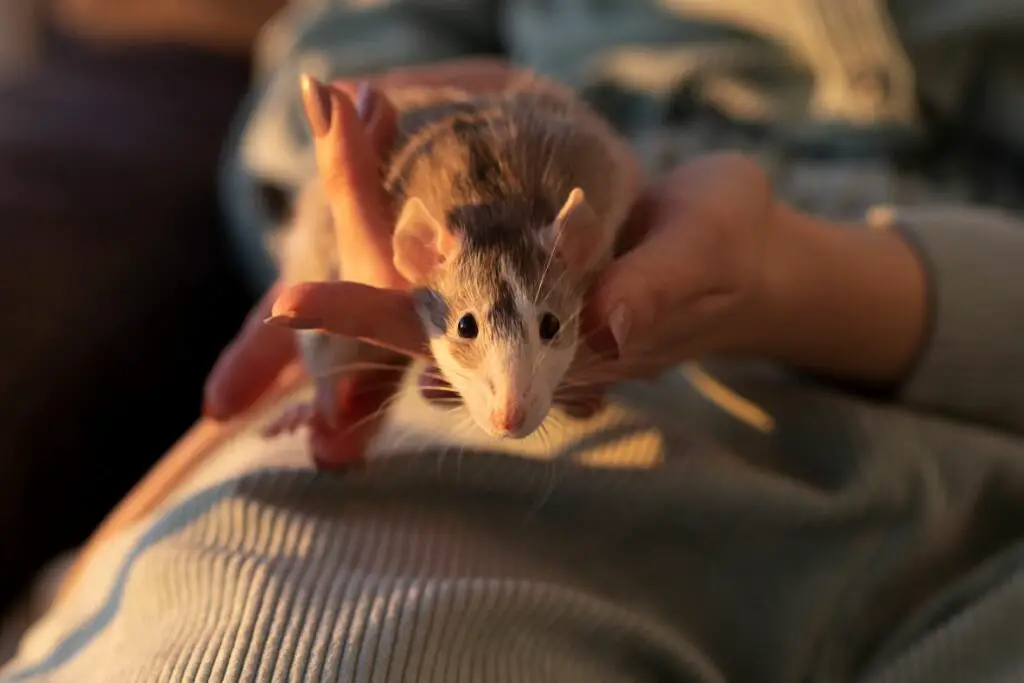Rats have been a popular pet for a long time, but there is still a lot of debate about whether they are clean pets or dirty animals.
Rats have long been considered dirty animals. They’re often unfairly stigmatized as plague bringers and dirty animals.
In this blog post, we will explore the topic cleanliness of rats as pets and try to answer some of the most common questions that people have.

Introduction
Misconceptions About Rats’ Cleanliness
One of the most common misconceptions about rats as pets is that they are dirty animals.
Many people believe that rats are disease-ridden creatures and that they are not suitable for keeping as pets.
Another misconception is that rats smell bad and are difficult to keep clean.
These things are simply not true.
Why is it important to understand the cleanliness of rats as pets?
Understanding the cleanliness of rats as pets is important because it can help people make informed decisions about whether or not to own a rat. It can also help people understand the best ways to care for their pet rat and keep it healthy.
Rats’ Natural Behavior
What are rats’ natural grooming habits?
Rats are very clean animals and spend a lot of time grooming themselves. They use their paws and tongue to clean their fur, head, and feet.
They also groom each other as a sign of affection and to help maintain social bonds within their groups.
How do rats keep themselves clean in the wild?
In the wild, rats keep themselves clean by grooming themselves and each other. They also use dust and dirt to help remove excess oil from their fur.
How do rats’ natural behaviors translate to their cleanliness as pets?
Rats’ natural grooming habits make them relatively clean pets. They are fastidious animals that spend a lot of time grooming themselves, which helps to keep their fur and skin healthy.
The Role Their Environment Plays
Rats are clean animals, but if you keep them as a pet you also have a responsibility to keep their environment clean.
What are the best living conditions for pet rats?
The best living conditions for pet rats include a spacious cage with plenty of room to move around and play, as well as a clean and dry bedding material. Rats also need access to fresh water and a balanced diet to stay healthy.
How often do rats need their living quarters cleaned?
Rats need their living quarters cleaned at least once a week, but it’s best to spot clean as needed. This means removing any soiled bedding or food, and wiping down the cage with a mild disinfectant.
What are some tips for keeping a rat’s living space clean?
Some tips for keeping a rat’s living space clean include using a good quality bedding material that absorbs moisture, providing a litter box for your rat to use, and cleaning any spills or messes as soon as they occur.
Rats’ Personal Hygiene
What are some ways that rats groom themselves?
Rats groom themselves by licking their fur, paws, and tail. They also use their paws to clean their face and ears.
How often do rats need to be bathed?
Rats do not need to be bathed very often. In fact, bathing a rat too frequently can strip their skin of its natural oils, leading to dryness and irritation.
A good rule of thumb is to bathe your rat no more than once a month and even then only if it’s really necessary.
What are some tips for maintaining a rat’s personal hygiene?
Some tips for maintaining a rat’s personal hygiene include providing them with clean bedding, grooming them regularly, and trimming their nails as needed.
You can also use a damp cloth to wipe down your rat’s fur if it becomes dirty or oily.
Health Concerns
What are some health concerns associated with owning pet rats?
Some health concerns associated with owning pet rats include respiratory infections, tumors, and parasites. Rats are also prone to dental problems, and their teeth need to be checked regularly to ensure they are not overgrowing.
What are some measures that can be taken to prevent health concerns?
To prevent health concerns, it’s important to provide your pet rat with a clean and healthy living environment, a balanced diet, and regular veterinary check-ups. You can also help prevent dental problems by providing your rat with hard objects to chew on, such as wood blocks or mineral chews.
How does the cleanliness of a rat’s environment and personal hygiene affect its health?
The cleanliness of a rat’s environment and personal hygiene are both important factors in maintaining their health.
A dirty living environment can lead to respiratory infections and other health issues, while poor personal hygiene can lead to skin irritations and infections.
Conclusion
The main takeaways from this discussion are that rats are clean animals that require regular grooming and a clean living environment to stay healthy. While they may require a bit more maintenance than some other pets, they can make wonderful companions for those willing to put in the effort.
Owning a pet rat can be a rewarding experience for those willing to take the time to care for them properly. They are intelligent and social animals that can provide years of companionship and entertainment. With proper care and attention, rats can be very clean and healthy pets.
I hope that this overview shed some light on the fact that rats are not the dirty animals that they are stigmatized as being. They’re in fact one of the cleanest rodents on earth and make excellent pets!
- How Long Do American Eskimo Dogs Live? Important Factors and Care Tips - September 29, 2023
- Do American Bulldogs Need Grooming? Essential Tips and Care Guidelines - September 29, 2023
- Do Bengal Cats Enjoy Playing? Essential Tips for Keeping Them Active - September 29, 2023